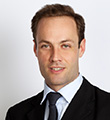7 September 2016
View Webinar Content
Presentation—Introduction to the webinar and panelists
Presentation—David Jacobs: Planning for Energy Access: Assessing Electrification Options
Transcript—Webinar audio transcript
The Clean Energy Solutions Center, in partnership with the Club of National Agencies and Structures in charge of Rural Electrification (CLUB-ER), hosted this webinar on assessing electrification options for energy access planning.
About 1.2 billion people (17% of the global population) have no access to electricity. Under business as usual scenarios, over 600 million Africans would still lack access to electricity two decades from now. Therefore, policymakers need to strengthen their efforts and refine their strategies in order to electrify all cities and villages in the coming decades.
This webinar addressed critical points in decision-making for planning electrification strategies. Important parameters discussed include the use of geographic information systems (GIS) for renewable energy resource assessments, load density, cost of grid expansion, cost of distributed generation technologies and the willingness to pay in rural communities. Decision makers will learn when to opt for grid expansion and when to choose off-grid solutions, namely solar home systems and hybrid mini-grids.
Presenter
 David Jacobs, Director, International Energy Transition (IET)
David Jacobs, Director, International Energy Transition (IET)
Dr. David Jacobs is founder and director of IET Consulting — International Energy Transition. He also holds the position of research associate and lecturer at the Environmental Policy Research Center of the Freie Universität Berlin, Germany. Previously, he was acting project director of the Transdisciplinary Panel on Energy Change at the Institute of Advanced Sustainability Studies in Potsdam, Germany and director of renewable energy projects at the consulting firm IFOK. His research focuses on financing, policies and framework conditions for renewable energy sources. Mr. Jacobs has an academic background in Economics and Languages and a PhD in political science. In the past years, he worked as a researcher and policy consultant for several governments (e.g., Germany, Azerbaijan, Malaysia, Taiwan, Ghana, Nigeria and Saudi Arabia) and international organizations (e.g., World Bank, United Nations Environment Programme, United Nations Development Programme, Organization for Security and Co‑operation in Europe and the Inter‑American Development Bank). He is author of several books and book chapters and a large number of articles on sustainable energy policy design in the developing and developed world.
